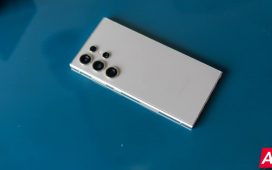The Puma is a familiar nameplate in Europe, as the automaker’s bestselling vehicle there since it surpassed the Fiesta in sales in 2021. Now, it’s getting a fully electric powertrain to complement the hybrid EcoBoost options that were added four years ago.
The small, sporty Mustang Mach-E-looking subcompact crossover will get 376km (233 miles) on a full charge, can charge from 10 to 80 percent in 23 minutes when hooked up to a 100kW DC fast charger, and will accelerate from zero to 100km/h in a not-totally-disappointing eight seconds.
Storage is a key selling point for the Puma Gen-E, with Ford promising extra space in the extremely compact trunk thanks to something the company is calling the “GigaBox.” It’s basically an extra storage space underneath the floor of the trunk for additional items, a feature found in most EVs today but of added relevance to the Puma thanks to its small stature.
Ford says the GigaBox can hold 145 liters (five cubic feet) of storage, which is a bit more than what most vehicles offer and certainly bigger than the 2.8 cubic feet of space offered by the gas-powered Puma’s understorage.
How small are we talking for this subcompact? The Puma Gen-E is 4,214 millimeters (165.9 inches) long, 1,930mm (75.9 inches) wide, and 1,555mm (61.2 inches) tall. That’s smaller than the 2023 Chevy Bolt EV and by far the smallest vehicle in Ford’s lineup.
Storage is a key selling point for the Puma Gen-E
To compensate, Ford is giving its electric Puma a facelift in a variety of ways, including a very literal facelift with a new Mustang Mach-E-inspired shield design replacing the traditional grille. It’s also getting “unique alloy” wheels for an added “electric vibe” that come in two sizes: 17 inches for the standard trim or 18 inches for the Premium version.
Inside, a 12.8-inch center display will run on Ford’s Sync 4 operating system (no Android-based Digital Experience in Europe yet) and supports wireless Apple CarPlay and Android Auto.
Ford says the Puma Gen-E will go into production at its assembly plant in Craiova, Romania, using electric drive units built in Halewood, England. The new EV is available to order today and will begin to make deliveries in spring 2025. Pricing has not been announced yet.











